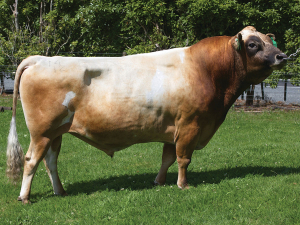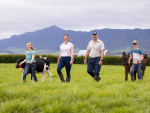A steady rise in the value of milk fat in recent seasons is due to strong consumer demand for milk fat products, says DairyNZ.
The rise is seen in the updated economic values used to calculate dairy cattle breeding worth (BW) released this month by New Zealand Animal Evaluation Ltd (NZAEL), a subsidiary of DairyNZ.
Economic values (EVs) are an estimate of a trait’s value to a NZ dairy farmer and contribute to an animal’s BW – the industry index which ranks cows and bulls on their ability to breed profitable and efficient replacement dairy heifers.
DairyNZ’s strategy and investment leader Dr Bruce Thorrold says the update reflects higher global demand for high fat dairy products; the milk price and the relative value of fat and protein are key factors in calculatiing dairy cattle BW.
Dairy farmers were told of this update last September and it is now in effect.
“This rise in milk fat value is now reflected in BW so, for BW in 2019, milk fat and protein have almost equal weighting,” said Thorrold.
Farmers can expect that the cows bred from high ‘BW2019’ bulls will have an increased ratio of fat to protein in their milk. The price changes for fat relative to protein have caused large shifts in BW, between and within dairy cattle breeds.
Breeding decisions have a permanent and compounding effect on dairy herd profitability and the aim of NZAEL is to identify animals whose progeny will be the most efficient converters of feed into farmer profit. BW is the index used to rank cows and bulls according to their ability to meet this objective.
“This information gives farmers insights into which bulls can add the most value to their breeding programme in a market where fat is a high value component. Ongoing development of our breeding programme is essential to improving our national dairy herd and the genetics behind how our cows produce milk, profitably and efficiently.”
Economic values are updated by NZAEL every year to reflect changes in values, ensuring BW remains relevant in an ever-changing market environment.
Calculations of economic values account for milk production; historical, current and forecast milk prices; income from culls, surplus cows and bobbies; the cost of generating replacements; and general dairy farm expenses.
Of the top 200 bulls ranked by BW in 2019, 70% are Jersey, 25% are crossbred and 5% are Holstein-Friesian. Farmers can see the ranking of active sires list at www.dairynz.co.nz/ras.











